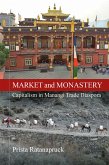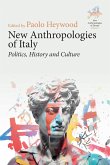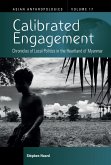Polarizing images of authoritarian, socialist or culturalist otherness compromise analyses of the Chinese state. Still, such images produce effects beyond academia when they inform performances of the boundaries between state and non-state. This book shows how performative boundary work leads to contrasting judgements that decide about support and access to resources. In an ecological village in Sichuan, citizen participation in food networks and bureaucracy signaled Western liberalism, Maoism or traditional rural culture for different audiences. Attention to the multiplicity of performed state boundaries helps China studies and political anthropology to understand such diverging classifications - and how they sometimes co-exist without causing tensions.
Dieser Download kann aus rechtlichen Gründen nur mit Rechnungsadresse in A, D ausgeliefert werden.









